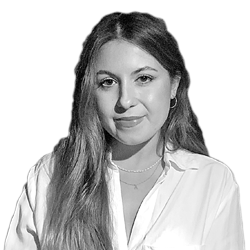Franchises are destroying my childhood memories.
What would I be like if Palma still had the ability to define me?


PalmI think I've found the seed of my fondness for going to bars and cafes. Since I was little, and unwittingly, frequenting these places has become a shared tradition between my father and me, a habit I inherited from him. "Okay, but we'll find somewhere to stop and have a coffee": this is and has always been my father's rule on any afternoon out in Palma, whatever the day's objective. It doesn't matter if we're going for a walk, shopping, or running errands. He always has his radar active for places where he can order "a coffee, very short, just a fingerful." I tell him this is called being a caffeine addict—which sounds more serious than telling him he drinks too much coffee—because I must contradict him on something, since we always end up spending more time on a terrace than doing what we had planned to do. As if it were all just a pretext to sit down, have a drink, and chat for a while.
The truth is, he misses our old haunts. Not because I can't go back in time, but because I can't go back to those places either. Now I have to rely on my memory to recall what those afternoons together were like, when we'd take refuge in any café in the Plaza de España on a winter day and I'd order a hot chocolate for a snack and warm up. His favorites—which, when I was older, would have been mine too—were Bar Niza, in 1916, and the old Bar Cristal (before it became what it is today, in every sense). I'd love to be able to look out the windows of those places—full of marble and wrought iron tables, newly stainless steel, and waiters in shirts and aprons—and play find another father and daughter, guessing what those moments must have been like for us. I wish I could sit back and imagine the conversations we'd have, the questions I'd ask him, whether we'd spend time in silence, maybe him reading the newspaper and me painting or playing with the latest Barbie he'd bought me to get me even more excited.
But none of that is possible anymore. Where I hoped to find childhood memories, I can now only ask for a pre-cooked taco or buy a very expensive pair of Italian panties, things I could do in any other European city, or practically anywhere in the Western world. It's not just that Plaza de España has become a mecca for hotel chains. fast fashion and the fast food: Palma has become a franchise city, a backdrop for tourists, just another eraser on the map. I feel like globalization has deprived me of a legacy, a past, and a collective memory. And it worries me to think that all of this is what, ultimately, gives us an identity—as a city, as a town, as individuals—because when we no longer know who we are, it means we've lost everything.
Customs, tastes, hobbies are what define us. What definition of myself would I have then if I could still return to the places I went 20 years ago? What would I be like if Palma still had the capacity to define me? We must make real efforts to have our own personality in a city where the supply of matcha lattes and bubble teas increases at the same rate as the grocery stores, historic establishments, and signs that should be part of our heritage disappear. If I, having just turned thirty, no longer recognize the city landscape, I can't even imagine the bewilderment that going out onto the street must be for the rest of the generations that came before me.
In my case, my father's stubbornness has ensured that I can still get a taste of what things looked like before the urban fabric became an interchangeable facade. Although we've been practically orphaned from our itinerary of stops in bars and cafés "with character"—as he says—he never stops striving to find new places to escape the speed of the world, the Scandinavian decor, and the specialty coffees. In recent years, his big project has become Bar España, Antic Can Vinagre, a vestige that survives amidst the Oms, a testament to what this street was like when cars still passed by, and which no one has been able to capture better than Miquel Julià (with his photography) and Nadal Suau (with his prose). I only hope that, in a few years, I won't have to turn to them and their work to remember the conversations I must have had with my father between those yellow, tiled walls, lit by an ever-burning fluorescent light. In a world that would want it white and expensive, furnished with wooden tables and enough power outlets to work with a laptop, the incorruptibility of this bastion is an act of resistance, like our father-daughter ritual, which refuses to disappear and forget who we are.
